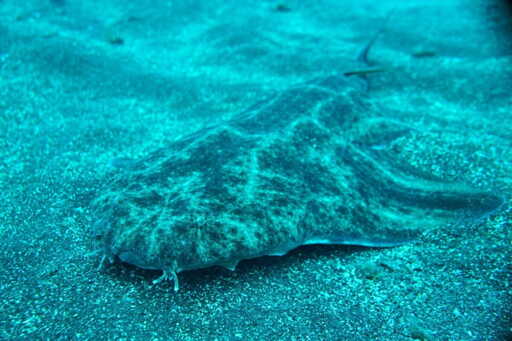Government agencies in Brazil’s Rio Grande do Sul state launched public procurements for more than 200 metric tons of meat from endangered angelshark species between 2015 and 2025, a Mongabay investigation has revealed. The meat is served in public institutions, including schools. Fishing for angelsharks is prohibited in Brazil, but its trade is legal if the fish are imported. In neighboring Uruguay and Argentina, angelshark fishing is restricted but not forbidden. Angelsharks, ray-like sharks that lie flat and camouflaged on the seabed, are one of most threatened shark families globally. All three species of angelsharks found off the coast of Brazil — angular (Squatina guggenheim), hidden (S. occulta) and Argentine angelshark (S. argentina) — are classified as critically endangered by the nation’s environment ministry. “It’s alarming,” Igor de Brito Silva, the ministry’s coordinator of biodiversity monitoring, told Mongabay. “We really had no idea that consumption of a threatened species had become so normalized.” Brazil is the world’s largest shark meat importer, according to UN COMTRADE data, and buys 99% of Argentina’s angelshark exports. Uruguay, a major shark-processing hub, doesn’t provide data on which countries shark meat is exported to, but experts suspect it’s another major angelshark supplier to Brazil. According to Chris Mull, who is studying the global shark meat trade at Dalhousie University in Canada, some of Uruguay’s shark meat exports may be originally caught in Argentina or even originate from illegal catches in Brazil. Silva, who has long fought Brazil’s illegal angelshark trade, said the volume sold in…This article was originally published on Mongabay
From Conservation news via this RSS feed


